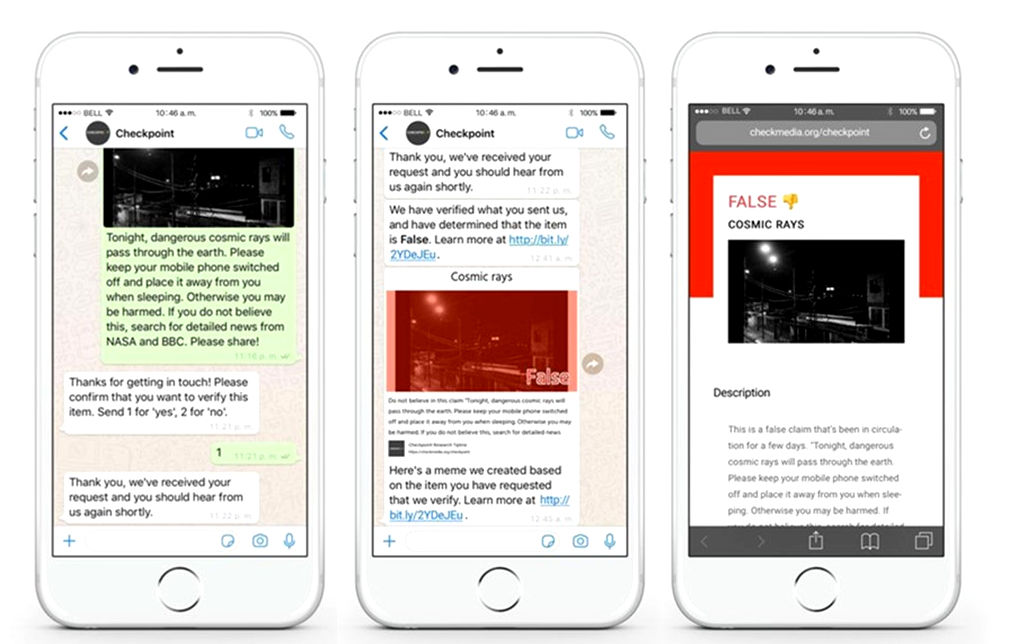
Facebook-owned WhatsApp has been making changes and adding features to its messaging platform recently. Today, WhatsApp has introduced a nifty feature for India called ‘Checkpoint Tipline’ to tackle fake news. This feature has been launched to understand and respond to misinformation during elections in India.
Fake news has been circulating all over the internet and stirring tension among people. People forward messages that they receive in WhatsApp without verifying its authenticity. In order to curb this, WhatsApp has launched a new feature called ‘Checkpoint Tipline’ which allows users to report the suspicious messages that they receive.
This initiative has been launched by PROTO, an India-based media skilling startup and technically assisted by WhatsApp.
How ‘Checkpoint TipLine’ works?
- People in India can submit uncertain information or rumors they have received to the Checkpoint Tipline on WhatsApp +91-9643000888.
- When the user shares the suspicious message with the tipline, PROTO’s verification center will seek to respond and inform the user if the claim made in a message shared is verified or not. The response will indicate if the information is classified as true, false, misleading, disputed or out of scope and include any other related information that is available.
‘Checkpoint Tipline’ will cover four regional languages including Hindi, Telugu, Bengali, and Malayalam, other than English.
Commenting on the launch, PROTO’s founders Ritvvij Parrikh and Nasr ul Hadi said:
The goal of this project is to study the misinformation phenomenon at scale — natively in WhatsApp. As more data flows in, we will be able to identify the most susceptible or affected issues, locations, languages, regions, and more. The verification reports we send back will encourage our grassroots-level “listening posts” to send more signals for analysis
Fergus Bell, Founder & CEO, Dig Deeper Media said:
The research from this initiative will help create a global benchmark for those wishing to tackle misinformation in their own markets. This is also innovation in verifying data around elections in a way that is accessible to those who need it in exactly the place they need it
